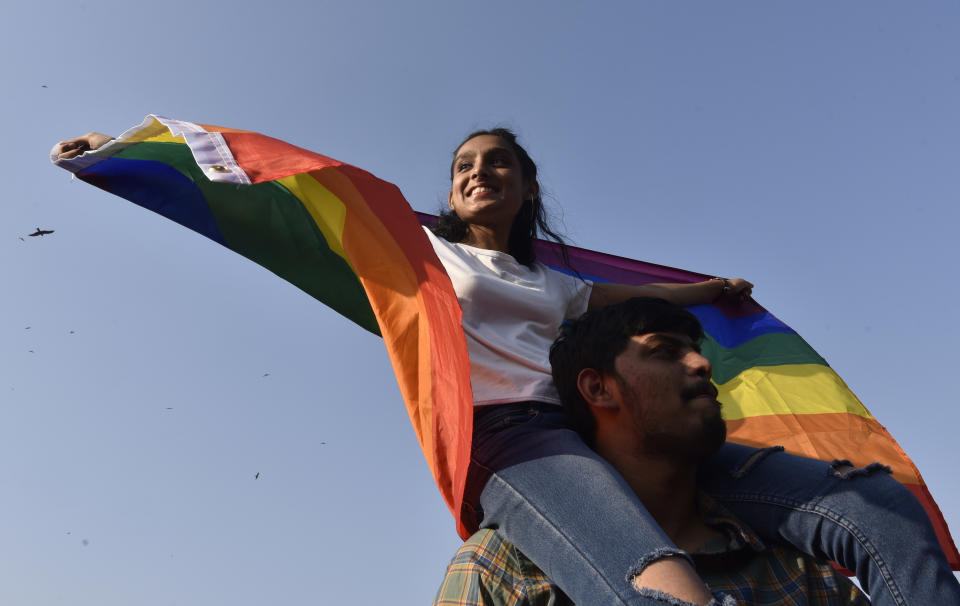How the word 'queer' has been reclaimed by a generation

Adam is a journalist from London who writes about LGBTQ+ experiences and issues.
"There's nowt so queer as folk," goes the old British expression once used to describe how people can behave in a strange way.
In the twentieth century, the word ‘queer’ became synonymous with homophobia. Using the term was the most obvious way to discriminate against homosexuals, when being homosexual was seen as ‘strange’ - a religious and social sin.
Some older men and women alive today will still remember those days. And in some parts of the country there are, sadly, still people who may use 'queer' as a slur towards those who are attracted to members of their own sex, or towards gender-non-conforming people - but those numbers are dwindling.
These days, the word ‘queer’ has been delightfully and powerfully reclaimed by the LGBT+ community to describe anyone whose sexuality can be defined as anything other than 'straight.'
Perhaps they're gay, lesbian or bisexual, but the possibilities don’t end there.

Read more: Why saying you ‘always knew Phillip Schofield is gay’ is homophobic
The word can also refer to gender. Queer people might be non-binary, meaning they don't identify as either male or female, or they might be transgender people more comfortable with the term 'queer' than the more traditional roles of the 'gay' or 'straight' person.
Jameela Jamil is the most recent famous advocate of the term ‘queer’, having come out this week.
Queer has, essentially, become a very powerful umbrella term which encompasses everyone that feels different, but there's another reason people like to identify as queer which has led to the term's skyrocketing popularity.
Being 'queer' allows more fluidity. It isn't only about people who are gay. The word allows its user to escape the restrictive worlds of 'bisexual' or 'gay' and accepts that our sexual preferences may change over time.

Read more: Jameela Jamil comes out as queer
It respects ideas developed as early as the 1940s, such as Alfred Kinsey's The Kinsey Scale which suggests that around 10% of us have same-sex attractions at some point in our lives.
But those same-sex attractions don't need to define us. They may change, and are ultimately just part of our sexual identity. And that's why the word queer carries so much power.
If we accept the research by Kinsey and others, like researcher David Spiegelhalter, and agree that sexuality is fluid and likely to change throughout our lifetimes, then 'queer' certainly makes more sense as an identity than 'gay' or 'straight'.
And there's more. Statistics reveal how these days, we're all striving to be more individual, rather than acting the same as others, because having a distinct identity is likely to increase our overall wellness and happiness.
So being queer goes beyond coming out. It positively discriminates against the closet by actually celebrating individuality and uniqueness. Rather than being something to hide, being different - being queer - has become something to celebrate.

 Yahoo Sports
Yahoo Sports 